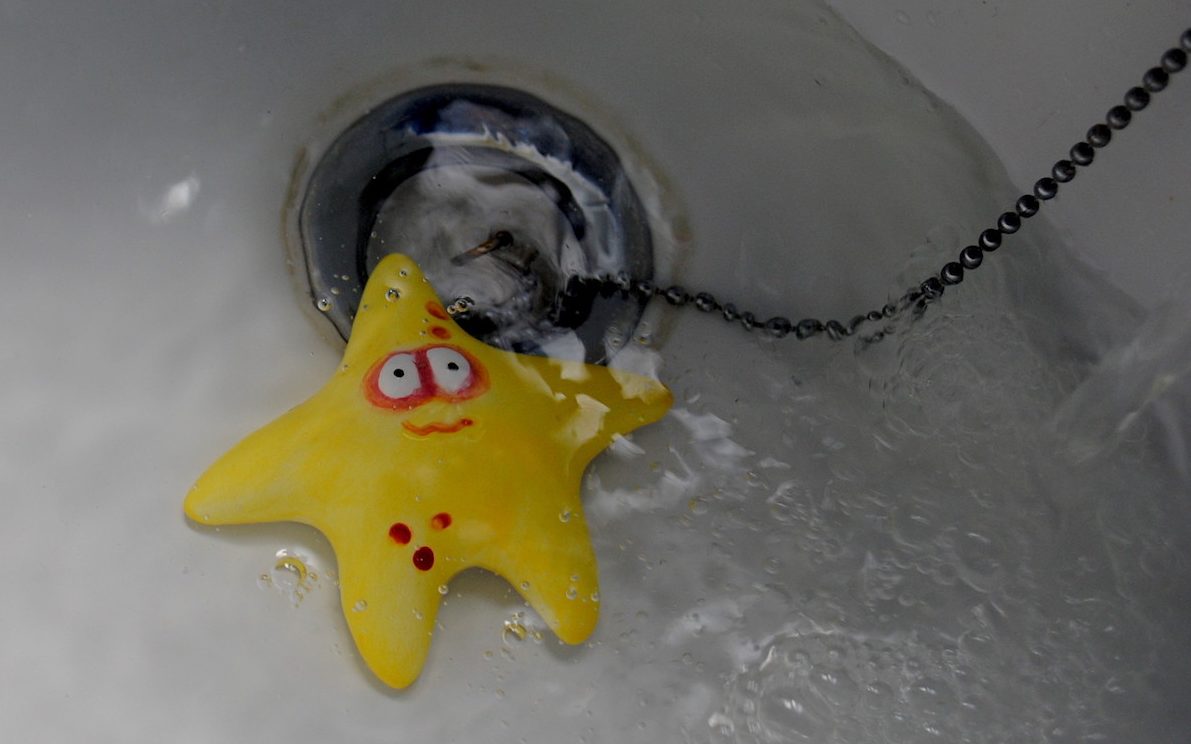The blessing, and the curse, of multipotentiality is that we can do anything. Literally anything.
I could spend all day acting, creating spreadsheets and business plans, working on a movie, or discussing theology and be happy. I could teach you how to make a movie, use Twitter, or setup an automatic savings plan with your bank. When I worked at a television network, my coworkers joked that my middle initial, G, stood for “Google” because I was a human version of Google. You have similar stories, don’t you?
The curse, of course, is that it is easy to get distracted by our own potential.
How to know when to let go
Emilie is spot-on when she suggests that you limit the amount of projects in “active mode”. The question then becomes, what happens when you have too many projects? How do you know which ones to kill or move to the back burner. I propose you consider the following key factors.
Freshness
How long has this project been on your plate? Do you have a specific plan for when you’ll act on it? If you’ve been sitting on a project or idea for three years now, perhaps it’s time to let it go. In fact, your project might be stale after only a few weeks. If you aren’t prepared to make stale projects an immediate priority right now, you won’t ever. So free up some brain space and let it go.
Passion
Are you excited about this project right now. Not, were you excited about this in the past; not, is this in your field; not, are you an expert in this area; not, are you supposed to be excited about this. Are you actually actively excited about it? Creating great work is not easy, if a project isn’t something you are ready to live and breathe, pass.
Impact
Financial impact: I’m a firm believer that there is more to life than making a quick buck and also that economic empowerment and autonomy is crucial to creating a just world. You are allowed to make money. You need to make money. You will be able to better serve the world if your needs are met, and at this particular juncture in time, we use money for transactions.
Social impact: How will your project affect others? Hopefully it will create a positive impact in the recipients, partners, and consumers. Will your new service enable users to work more efficiently? Will your counseling help families reconcile after traumatic experiences? Will your medication save lives? Will your technique enable to students to learn more? You do not need to be a martyr for the cause and also your life and work will be more fulfilling when you create sustainable, empowering social good along the way.
Compatibility
What else is on your plate? How does a particular project fit in with your other projects and commitments? Writing two screenplays simultaneously might be overkill on your brain. Getting a law degree and a Masters of Social Work at the same time might provide a nice mental contrast. Take account of time, concentration, topic, focus, audience and cost and, assess how your projects fit (or don’t fit) together.
Ease
If you have a project you can bust out quickly, rather than allowing it to take up brain space on the back burner for weeks, months, or years while you work on other projects, complete it quickly so that you can build on the sense of satisfaction AND clear your plate.
How to untether from your own projects
Deciding which projects and interests need to go is easier than actually cutting the cord. When it comes time to move on, you will likely encounter emotional pushback. “But this might really be something great,” “But I’ve always wanted to…,” “But I already announced it,” “But I’ve already put in so much effort.”
Resistance to letting go can be just as fierce as resistance to doing the work. This makes sense, the more time you spend contemplating projects you might do, the less time you have to actually create something valuable. Contemplation is easier than achievement. Don’t let your brain trick you into settling.
You are not your work.
You are not your book, blog, consulting service, non-profit, or motion picture. This is especially true for multipotentialites whose “About Me”s are filled with slashes. Remind yourself that you are not any one project or interest. Even if it’s what you have an education in, even if at one point you believed it would be the game changer, even if you still believe it might make you buckets of money. You can always walk away, there will always be something else. Believe in abundance not scarcity.
Experimentation begets adaptation begets survival begets thriving
As you let go, you create space for new pursuits. You have the opportunity to reflect on and learn from your past projects (even the ones you never saw through to fruition). We prune trees, bushes, and flowers to help them grow: prune your personal and professional lives.
Replace, don’t subtract
Untethering yourself from your own projects can be scary. What if there is nothing left? Instead of thinking of letting go, frame your decision as a replacement.
The blessing, and the curse, of working for yourself is that there is no boss telling you what to do. You get to make the rules and set the priorities. At an office job, your boss gives you the next assignment, as multipotential business owner, you have to make the next project. Excited? Terrified?
When it’s time to let go of the film you are editing that just isn’t cutting it, start a non-profit. When your blog is no longer fulfilling, start another one (Ev Bogue became infamous when he turned off Far Beyond The Stars and started EvBogue.com). You’re not killing a project for the sake of killing it (though, sometimes that can be satisfying too!), you’re letting it go to make space for something new.
Replacement is more effective than subtraction.
Nothing is final
You can always return to projects and interests that you thought you killed for good months or years later as the interest (re)strikes you. In the “worst case scenario,” if you kill off a perfectly good project in pursuit of greener grass on the other side only to find nothing waiting for you, you can always try again or find traditional employment. There are damn good reasons for having a regular job.
Pull the big, scary plug
In the end, it comes down to taking action. You can research and analyze and compare and prepare and eventually you just have to do it. You have to trust yourself. You have to know that what you are working toward is going to be bigger and better than what you are leaving behind–because what you are leaving behind is stale, passionless, ineffective, unprofitable, incompatible and/or just plain difficult, right? And why would you want to hold on to that?
Your Turn
What projects and interests of yours have been on a low-boil for too long? What are your concerns about letting go (or taking immediate action)?

Brian Gerald Murphy is a specialist in social change. He works as a web consultant, media producer, writer, speaker, and facilitator, and conspires with visionary individuals and organizations to change the world through web and media. His most recently booklet, Entrepreneurship As An Act of Resistance focuses on shifting social change away from charity toward direct empowerment and is able for free at www.briangerald.com.

Good points, Brian.
I find myself chanting, “keep moving forward,” to myself at various points of transition. It is an easy phrase that helps me let go, move forward and keep a good attitude during transition.
My biggest fear or stumbling block to letting a project go is worry. Worrying that I didn’t give it enough effort, time or wasn’t good enough to make it successful. Or, worrying that I will let people down or not fulfill my potential (which is super vague and tugs at self worth).
I appreciate the end of this post pointing out that nothing is final:)
Holli, I’m glad you appreciated the end of the post because that’s the lesson I taught (and retaught) myself for the past few years.
Whenever worry (or fear) comes up for me, I try to to look it in the eyes and unpack it. Of what am I really scared? Why am I scared? What can I learn from that? How can I honor genuine concerns while still making bold, powerful choices? Worry and fear can be paralyzing if we let it!
Thanks for the comments, great human insight into the process!
Sometimes the timing is wrong for a project and thats when it goes on the back-burner for me, I rarely ever trash ideas entirely until I have been able to try them and make a decision about continuing them or not. Some projects I wanted to try for years before having the resources to do them, and altho I had good times, the bad stress about doing them properly for that line of work failed me miserably and I let them go. But I learned alot and I am thankful and I can even give advice to other people about that line of work if they ask me about it. I like helping people and that is what I am trying to do now.
Emily, I hear ya on waiting on the right time. And also the stress that goes along with not doing something properly. “It’s OK to say no, or not now” was an important lesson for me to learn!
Thanks for sharing 🙂